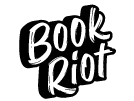
LibraryThingEin Zuhause für Ihre Bücher.
LibraryThing ist ein kostenloser Katalog in Bibliotheksqualität, mit dem Sie den Lesefortschritt Ihrer gesamten Bibliothek verfolgen können.
oder
- LibraryThing ist völlig kostenlos.
- Fügen Sie Bücher, Filme und Musik von Amazon, der Library of Congress und 4,941 anderen Bibliotheken hinzu.
- Verfolgen Sie Ihren Lesefortschritt. Bewerten und rezensieren Sie Ihre Bücher.
- Sehen Sie sich detaillierte Diagramme und Statistiken zu Ihrer Bibliothek und Ihren Lesegewohnheiten an.
- Finden Sie Ihr neues Lieblingsbuch aufgrund personalisierten Empfehlungen.
- Eine herzliche und einladende Gemeinschaft von fast drei Millionen Buchliebhabern.
- Treten Sie Gruppen bei und sprechen Sie mit anderen Buchliebhabern.
- Unser Early Reviewers-Programm bietet jeden Monat über 3,000 kostenlose, frühzeitig erscheinende Bücher.
- Apps für iPhone und Android.
Was Nutzer sagen
“If you love books, and love people who love books, LibraryThing is for you.”

“Creating a catalog on the website is easy.”

“There are also suggestions of related books to read; it's a virtual feast of information.”
All Things Considered

“Not surprisingly, librarians love LibraryThing.”

“And it’s all free, with no membership fees, download limits, or ads–how awesome is that?”

“LibraryThing has evolved into more than just a handy tool; it has become a thriving community.”

Jüngste Aktivitäten
MissYvonnee hat bewertet
remiplum hat bewertet
Newspapers hat bewertet
MissYvonnee hat bewertet
bnscrggns hat hinzugefügt
drexie22 hat hinzugefügt
Agryphon42 hat hinzugefügt







